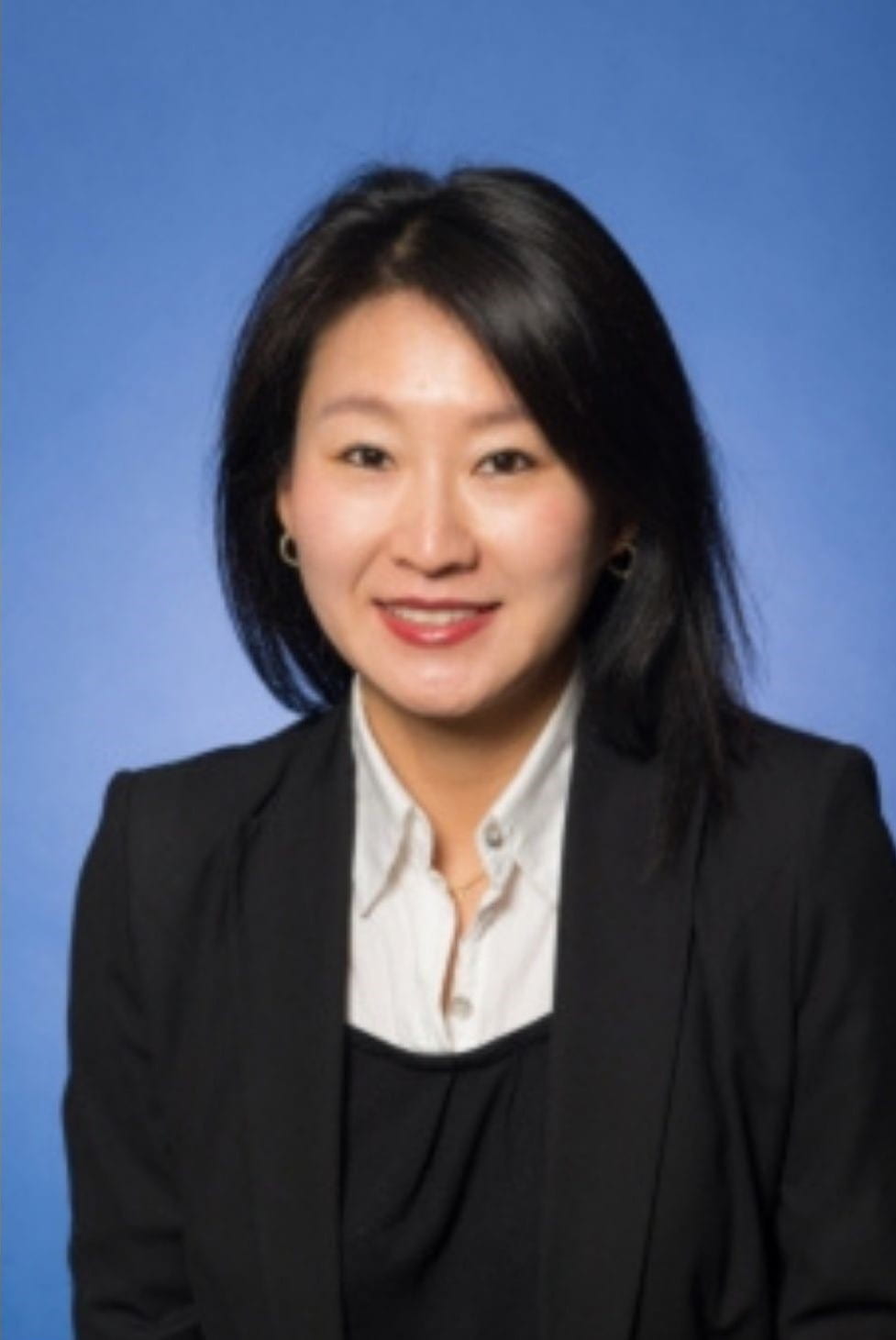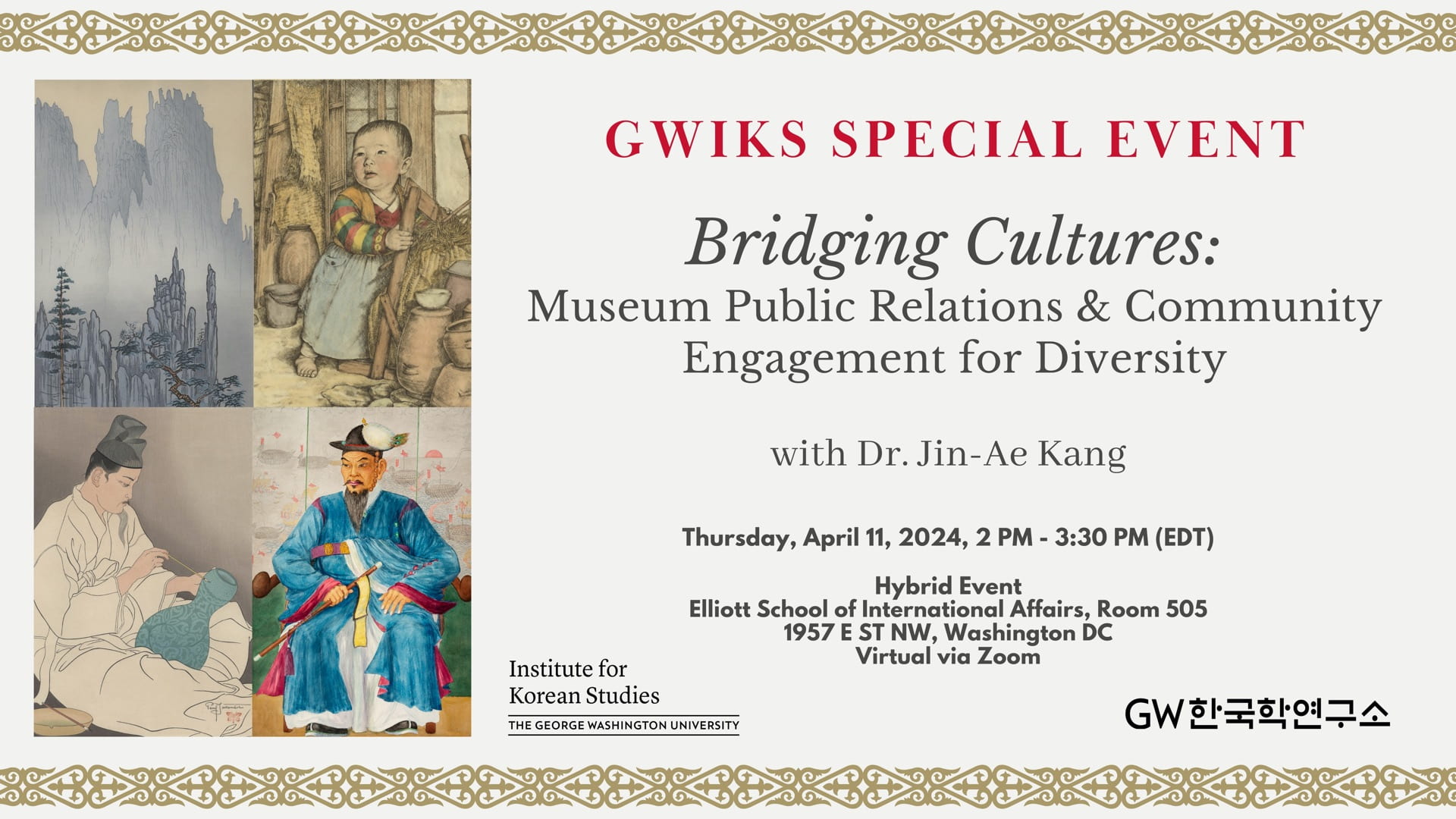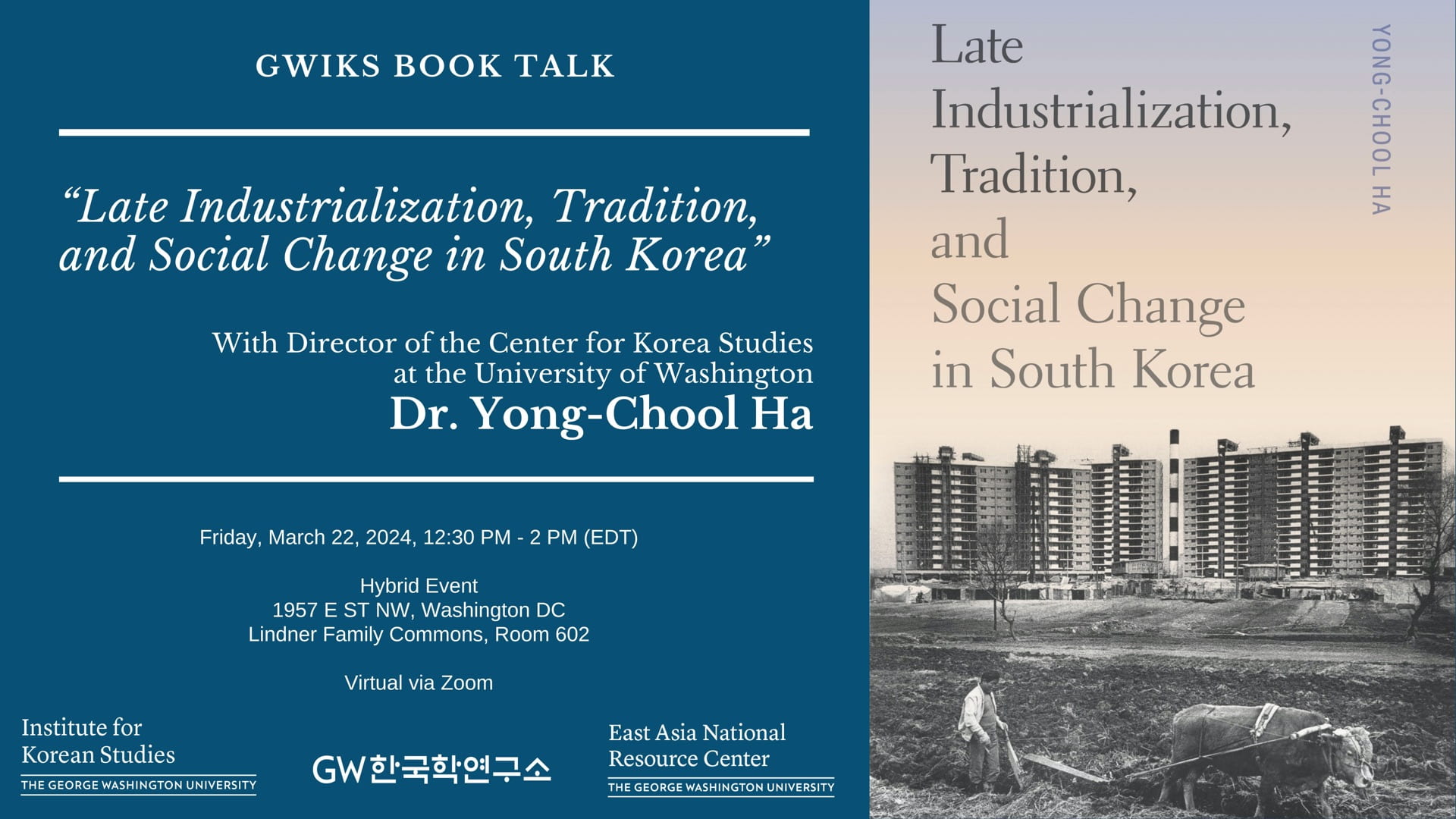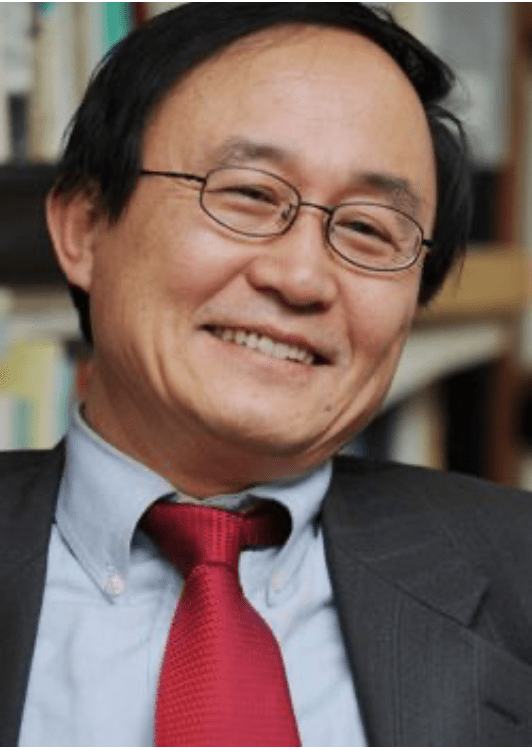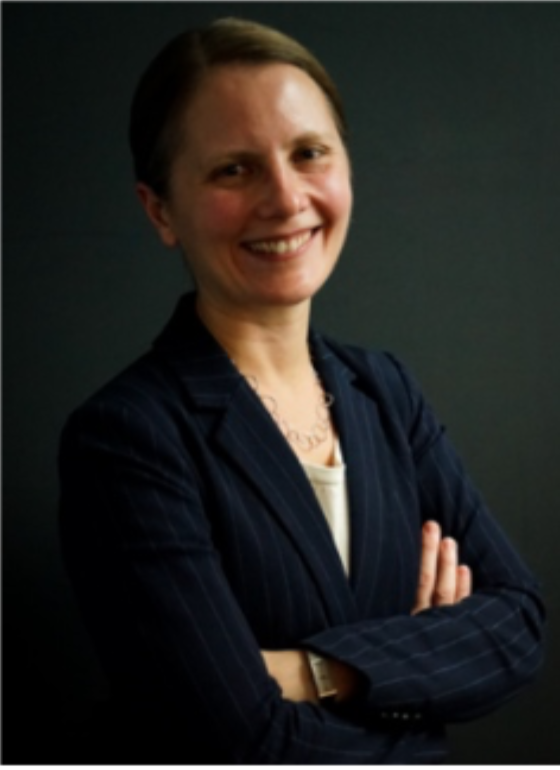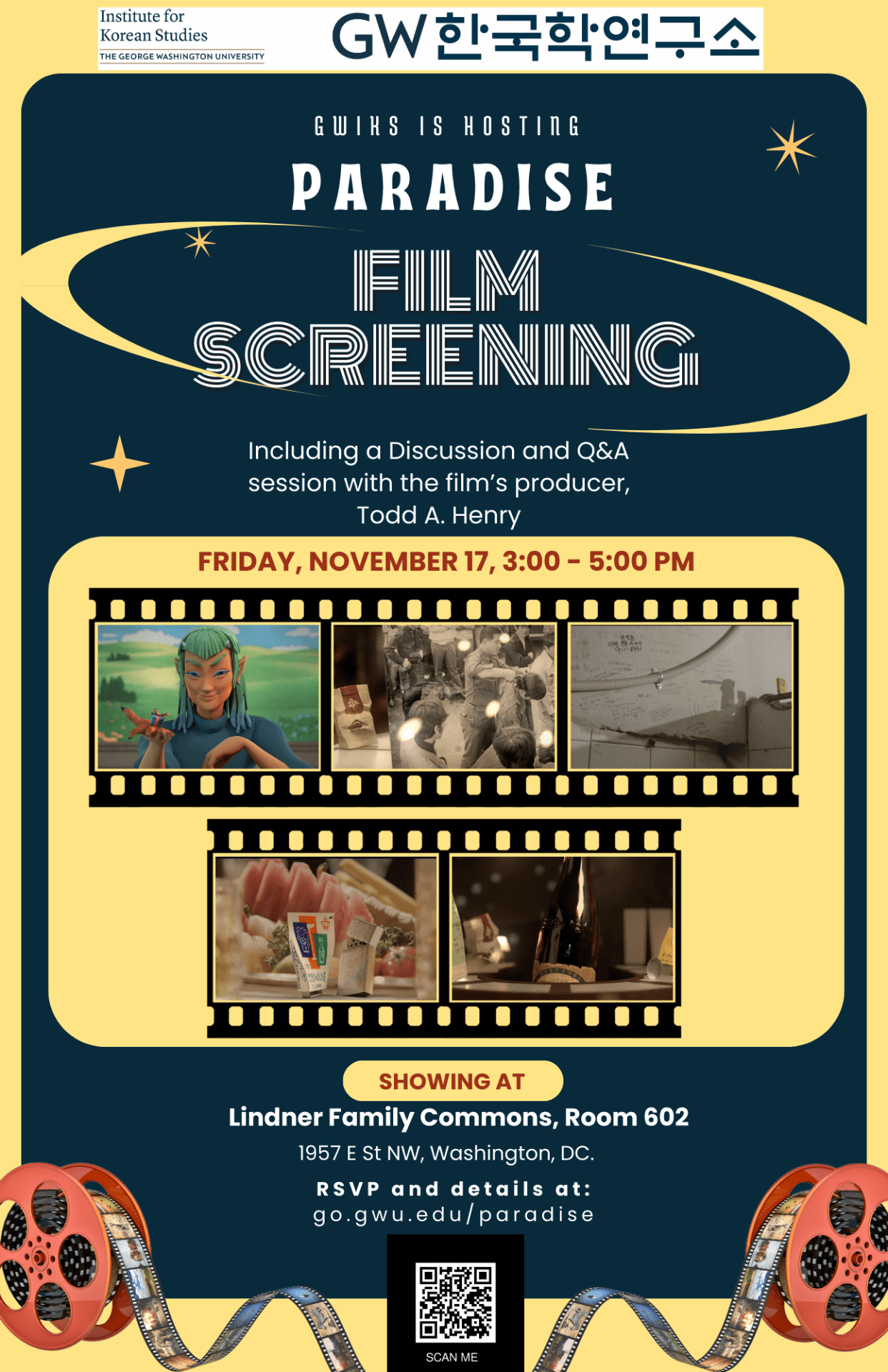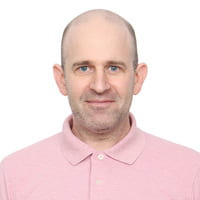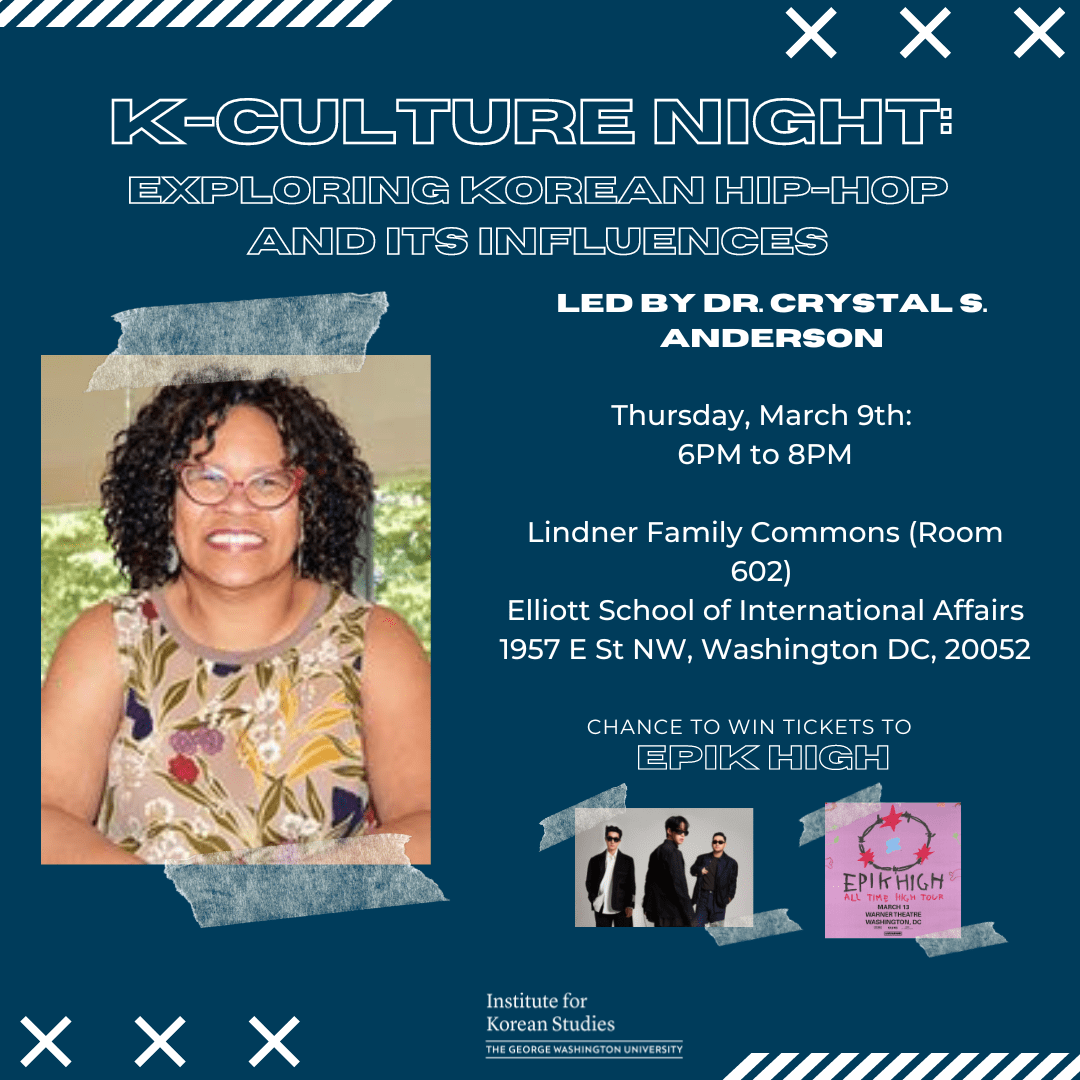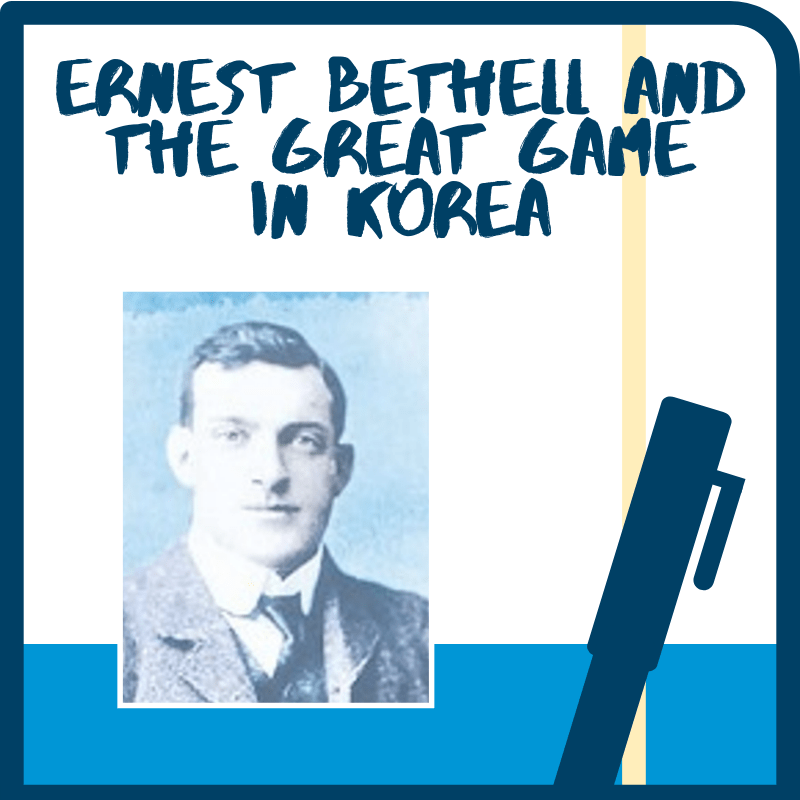“Bridging Cultures: Museum Public Relations & Community Engagement for Diversity”
Thursday, April 11, 2024
2:00 P.M – 3:30 P.M. EST
Hybrid Event
Elliott School of International Affairs, Room 505
1957 E ST NW, Washington DC
Virtual via Zoom
About the Event
This lecture delves into the world of museum marketing and community engagement, offering fresh perspectives through the lens of diversity and ethnic museum PR. Dr. Kang will share communication strategies, drawing inspiration from the art exhibition, “Old Korea“. This exhibit showcased the works of four Western artists, Elizabeth Keith (1887-1956), Paul Jacoulet (1896-1960), Lilian Miller (1895 – 1943), and Willy Seiler (1903 – 1988) – who embarked on a journey to Korea a century ago. Their artworks, born from curiosity, critical reflection, and genuine respect for the Korean people, offer a glimpse into a bygone era. These pieces serve as a powerful reminder of our shared humanity, transcending cultural differences and fostering understanding. The lecture is specifically designed for communication specialists, marketers, and anyone with a passion for Korean culture and history. The GW Institute for Korean Studies invites you to join us for this special lecture as Dr. Kang explores how museums can leverage the power of art to inspire audiences to embrace differences, celebrate cultural heritage, and dismantle harmful stereotypes.
Speaker
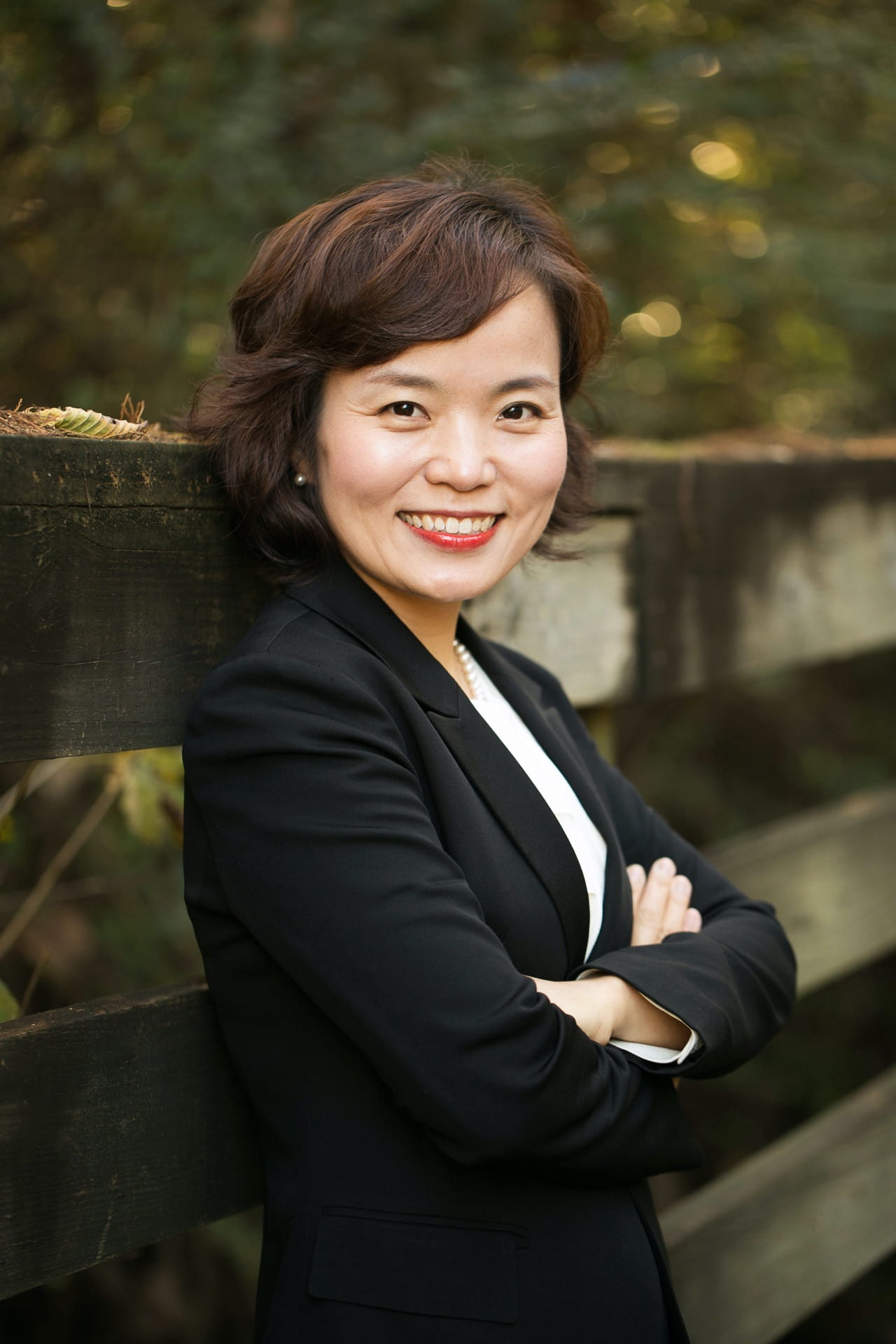
JIN-AE KANG (Ph.D. at the University of Alabama) is a researcher, educator, and lifelong learner with a passion for harnessing the power of storytelling across diverse topics such as corporate communication, public health issues, and community building. Her publications span journals like Public Relations Review, Journal of Communication Management, Journal of Consumer Behavior, and Communication Studies. Driven by the stark realities of the COVID-19 pandemic and racial injustices, Dr. Kang champions the need for storytelling strategies that transcend cultural, national, and generational divides. Her commitment to intercultural communication birthed impactful projects like the 2022 art exhibition, “OLD KOREA from the Eyes of Four Western Artists” and the mini-documentary “OLD KOREA-Dr. Song Story.“ Recognized for her outstanding contributions, she received the ECU International Service and Engagement Award and the ECU Scholar-Teacher Award in 2022. She recently served as president of the Korean American Communication Association from 2021 to 2023.
Moderator
